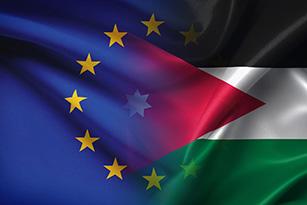
Check against delivery!
I would like to thank Foreign Minister Safadi for the warm welcome to Jordan. This is my first visit to the Middle East in my capacity as High Representative for Foreign Affairs and Security Policy of the European Union. And I wanted it to be here in Jordan, to showcase our strong partnership on a bilateral and multilateral level.
As partners, we will continue to support Jordan withstand the difficulties the country is facing on all levels – not least because of the regional situation and the toll on the Jordanian economy. We are very much aware of that. For this reason, since 2011, we have allocated €2.8 billion in bilateral assistance to Jordan. We want to continue supporting Jordan in its efforts to bring opportunities to its youth and to achieve sustainable economic growth.
We highly appreciate, Minister, the important role that you are playing in stabilising a turbulent region.
We are in the ninth, starting the tenth year of the Syrian crisis, which is unfortunately currently worsening. Worsening again, if we look at Idlib, where tens of thousands of civilians are driven from their homes following an indiscriminate bombing campaign by the regime and Russian aircrafts. We are talking about 4 million people. 4 million civilians that are trapped in Northwest Syria, among them 2 million children.
Jordan has been providing continuous support to refugees from the region. There are hosting more than 1.3 million Syrian refugees here. The European Union remains strongly committed to support Jordan’s generous efforts. That is why we have allocated recently over 440 million in order to help you in this big effort.
I thank you, Minister, for the frank discussion we have had about the new proposal brought forward by the United States, the so-called Peace plan for the Middle East.
In Jordan and the European Union, we are very much aware that the Israeli-Palestinian conflict is one of the longest, most painful and complex conflicts in our history. The experience over the past 50 years has shown that without agreement among all sides, no peace plan has the chance to succeed. To find a sustainable way forward, both parties need to come back to the table. The US plan challenges many of the internationally agreed parameters: the 1967 border, as agreed by both parties, with a state of Israel and an independent, viable state of Palestine, living side-by-side in peace, security and mutual recognition.
Jordan plays a very special role in the efforts to resolve the conflict, in particular as regards Jerusalem and as custodian of the Holy Sites. We share the commitment to a two-state solution and respect for international law.
We have also discussed with the Minister many other issues of the region, especially the situation on the Gulf region, the Iran [nuclear] deal, the situation in Iraq and also the fight against Da’esh, which has to continue, especially at this critical moment. We will continue talking about all this, Minister. And [about the Middle East Peace Process] I am sure we will share the same positions [and objective] to ensure [that] our commitment [is] brought to action, brought to new engagements. Positions that cannot be just saying “it doesn’t work”. We have to say what is going to work. We need solutions that can be accepted by both parties in this long-lasting conflict.
Thank you.
Video recording available here: https://audiovisual.ec.europa.eu/en/video/I-184010
Details
- Publication date
- 3 February 2020
- Author
- Directorate-General for Neighbourhood and Enlargement Negotiations
